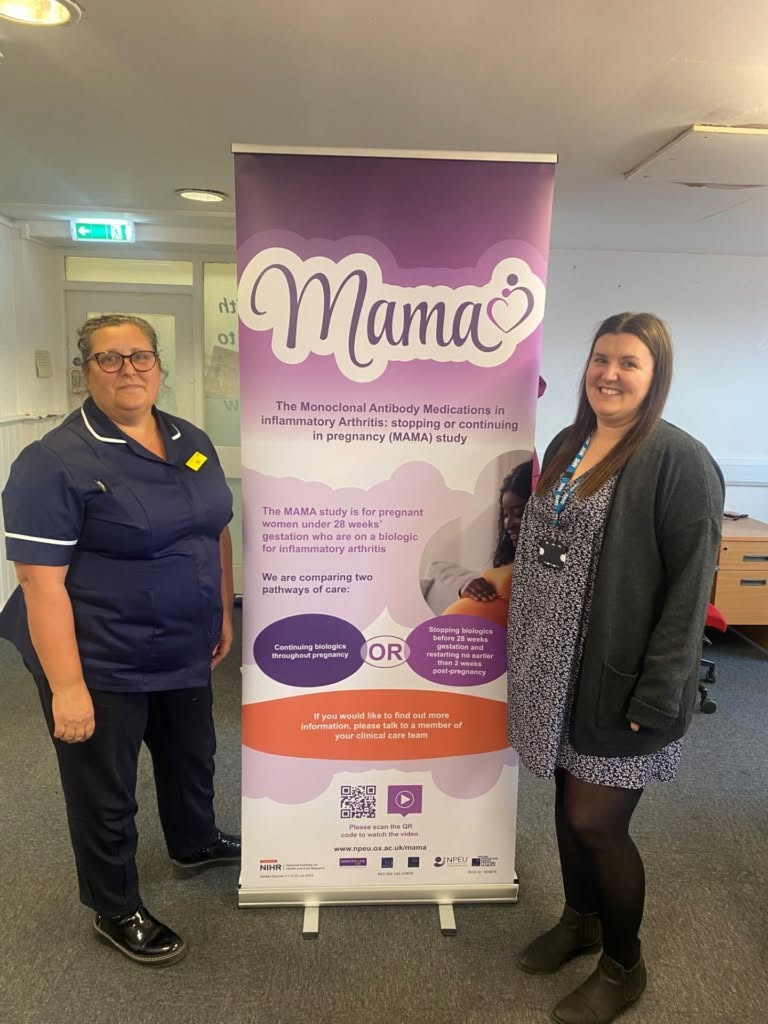Around one to two per cent of people are affected by inflammatory arthritis and many are treated with new medications known as biologics – targeted drugs made from living cells that help reduce inflammation by acting on the immune system.
Many individuals are choosing to start a family while using biologics, but how effective and safe they are in the second half of pregnancy, and after birth, is not yet fully understood.
The MAMA (Monoclonal Antibody Medications in Inflammatory Arthritis) Study will investigate the effects of two different care pathways: continuing biologic medication throughout pregnancy, or stopping biologic medication before 28 weeks’ gestation and restarting no earlier than two weeks after delivery.

Dr Chee-Seng Yee, Consultant Rheumatologist and Principal Investigator for the study at DBTH, said: “Many patients with inflammatory arthritis are getting pregnant. It is important to manage arthritis well during pregnancy because active inflammation can lead to worse outcomes in pregnancy.
“Currently, more patients with inflammatory arthritis treated with biological therapy have the treatment continued during pregnancy.
“There is still limited evidence about the safest way to manage inflammatory arthritis during pregnancy, particularly when using biologics, and this research will help us give expectant mothers clearer, evidence-based guidance in the future.”
Launched in February 2025 and run by the National Perinatal Epidemiology Unit Clinical Trial Unit (NPEU CTU) at the University of Oxford, the study is open to individuals who are less than 28 weeks pregnant and currently taking biologic medication to manage their condition.
DBTH is one of eight participating hospital sites across the nation and the NPEU hope to increase this to 35, with a goal of 328 recruits overall.
Researchers hope this study will provide important insights into the safety and outcomes of biologic use in pregnancy and help inform future clinical guidance.
Hannah Beardmore, Research Midwife at DBTH, said: “This study is a great example of collaboration between research teams, clinicians and patients. By taking part, expectant mothers are helping us answer important questions that could improve care for pregnant women with inflammatory arthritis for years to come.”
If you are pregnant and have inflammatory arthritis, and are interested in learning more about the study, please speak to a member of your clinical care team or visit the MAMA Study website: https://www.npeu.ox.ac.uk/mama




